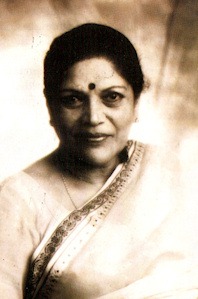Shobha Gurtu: The Queen of Thumri and Indian Classical Music
By Amit Kumar

Shobha Gurtu (1925-2004) was a renowned Indian singer celebrated for her mastery of Hindustani classical music, particularly in light classical forms like thumri, dadra, and ghazals. Born as Bhanumati Shirodkar on February 8, 1925, in Belgaum, India, she received her initial training from her mother, Menakabai Shirodkar, a singer and dancer. After marrying Vishwanath Gurtu, she became widely known as Shobha Gurtu, adopting her married name.
Though trained in the classical khayal style, Gurtu’s passion and fame soared through her tender yet powerful renditions of thumri, earning her the title “Queen of Thumri.” Her unique style integrated semi-classical elements with pure classical techniques, marked by the expressive ‘Abhinaya Ang’—the emotive and dramatic presentation through voice.
Shobha Gurtu’s versatile talent extended into Indian cinema as a playback singer for Bollywood and Marathi films, with notable songs including “Saiyaan Rooth Gaye” from Main Tulsi Tere Aangan Ki (1978), for which she received a Filmfare nomination. She lent her voice to films such as Phagun (1973) and contributed to Marathi cinema with songs in films like Saamna and Lal Mati. Her collaborations with musicians like Ravi Shankar and Zakir Hussain showcased her artistic depth and fusion of classical and folk styles.
Throughout her five-decade-long career, Shobha Gurtu performed worldwide, including prestigious venues like Carnegie Hall in New York City. She was honored with numerous awards, including the Sangeet Natak Akademi Award in 1987, various state-level recognitions, and the Padma Bhushan in 2002, India’s third-highest civilian award for her contribution to the arts.
Shobha Gurtu passed away on September 27, 2004, leaving behind a rich legacy as a beloved classical vocalist who enriched Indian music. Her emotive voice and dedication continue to inspire musicians and audiences alike, cementing her status as an icon in Indian classical music.
